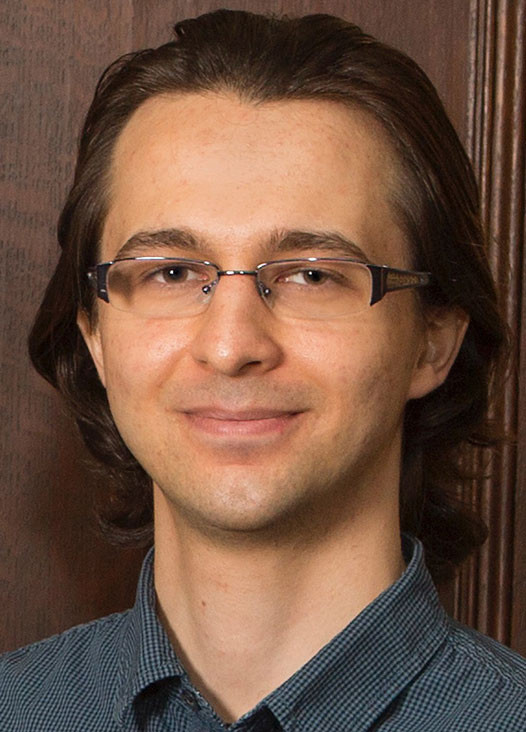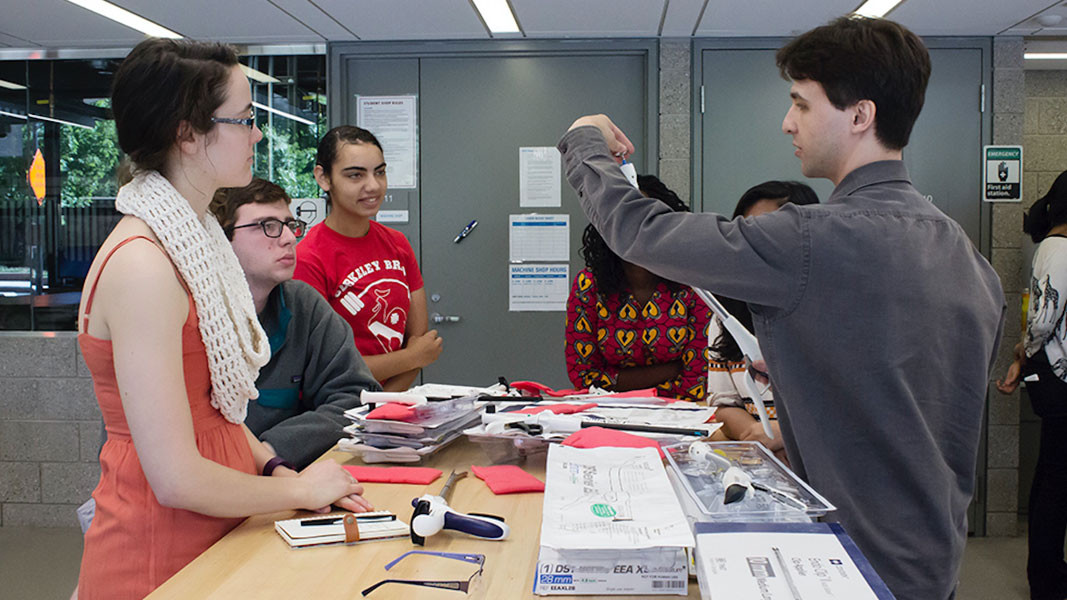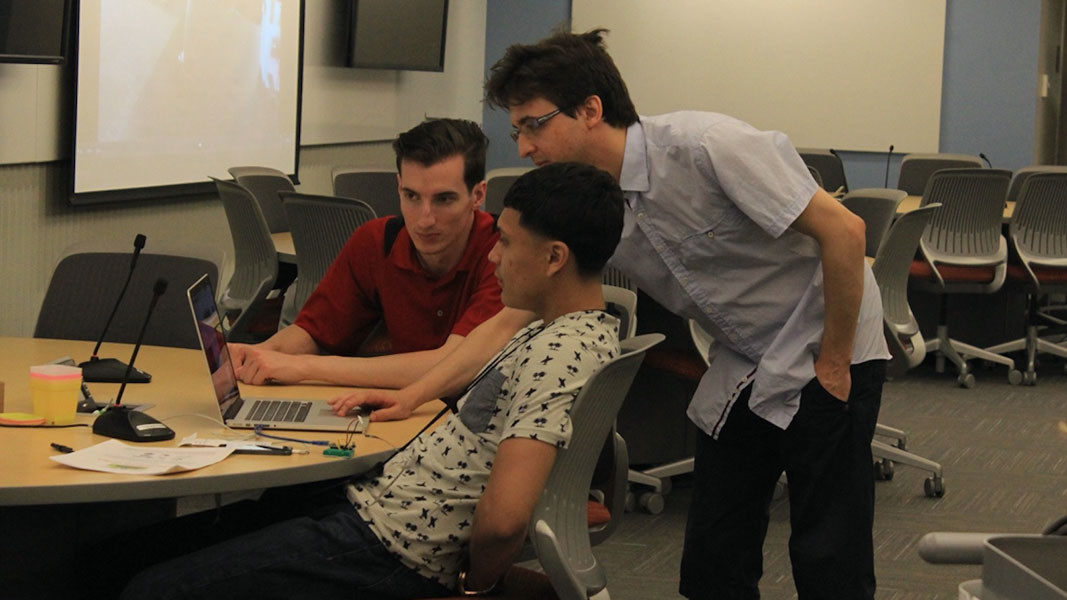He discovered science thanks to two enlightened teachers at primary school. And now that he is working at the pinnacle of academic knowledge he never forgets to give what he has learnt back tothe world. Because knowledge can change the world only if it is shared.
Stefan Krastanov is working on the creation of a quantum computer, he also lectures at Harvard but has never forgotten that he owes his fascination with science to his schoolteachers in Bourgas. At the Vasil Aprilov primary school and then at the secondary school of mathematics and natural sciences he found dedicated teachers and went to his first science classes, winning medals from competitions and Olympiads. Meanwhile he honed his knowledge in the sphere of physics with acclaimed teacher Theodosii Theodosiev, solving problems that are not to be found in any textbooks. After secondary school he tried out several educational systems in Europe, but found the best conditions for science at Yale and Harvard University.
 Most American institutes create space for scientific work but they also make you feel at home, Stefan Krastanov says. They want you to do your research work, and do it well, but they also want you to be part of university culture – that you do volunteer work, that you find the time to talk to the schoolchildren, not just lecture them. Giving back to the world is an essential part of what we do.
Most American institutes create space for scientific work but they also make you feel at home, Stefan Krastanov says. They want you to do your research work, and do it well, but they also want you to be part of university culture – that you do volunteer work, that you find the time to talk to the schoolchildren, not just lecture them. Giving back to the world is an essential part of what we do.
The young quantum physicist has found a way to express his gratitude for the knowledge gleaned and the opportunities given – he works with children, teaching physics mostly in the poorer neighbourhoods. He also helps teenagers in the town where he grew up when he is able to return to Bulgaria for short spells. But the most important thing he wants to teach youngsters on either sides of the ocean is that understanding the world is possible, even if you are not a physicist.
Stefan Krastanov explains quantum physics, which most people find impossible to comprehend, in simple terms: It tells us what the fundamental limitations that the universe has imposed on us are. And adds that if something can be achieved using the laws of quantum physics then, most probably, it cannot be achieved any other way.

Quantum physics overcomes some of the limitations we think are immutable, he says further. But more importantly, to my mind, it points to the limitations that are insurmountable. And the question is what we could do when we have the most powerful computer which the laws of the universe allow us to put together, and how these laws set down limitations to technologies.
Medicine could be one of the spheres of application of the quantum computer.
With a quantum computer which makes use of the laws of quantum physics we can simulate medicines and materials it is too hard to create in a laboratory, Stefan Krastanov explains. This means we will be able to check whether a new medicine or a new material will actually work before committing huge sums for experiments. In this way we could create materials that are sturdier, lighter and create energy from the sun. At the moment we have a computer that resembles a quantum computer – it demonstrates many of the phenomena expected of it but still has too few quantum bytes to be of practical use. So that we shall need hundreds of thousands of these quantum bytes which it is so difficult to have functioning simultaneously at this point. But I am an optimist and I hope that within 10 years we shall have a quantum computer capable of simulating new materials, and soon after – new medicines.

Technologies should be created in such a way as to help the world and safeguard it, the scientist says. And if people want to inhabit a more spiritual and ethical environment they should know that there is a way to do that - by working for a better world, he says.
Photos: private library
Many books have been written about the Bulgarian capital, telling about both its remarkable history from antiquity to the present day and the memories of various travellers who visited the city. An important place among them is..
About 70 children from 22 schools in UK, Germany, France, Spain and Slovakia will gather on June 21 in the Bulgarian Embassy in London to participate in the ninth edition of the International Bulgarian Reading Competition. The best..
As we approach the height of summer and temperatures soar, access to water becomes essential. We remember the hardships of summer 2024, when hundreds of towns and villages across Bulgaria experienced a complete or partial lack of running water. The..
The consulates of a country abroad are usually seen simply as the place where citizens go when they need assistance—whether to obtain documents or resolve..
One of Bulgaria's longest-running summer festivals takes place in Primorsko , a resort town on the Black Sea coast. Over the next three months, Prim..
Croatia advises its nationals to postpone non-essential travel to Serbia Croatia’s Ministry of Foreign Affairs has advised Croatian nationals..

+359 2 9336 661
